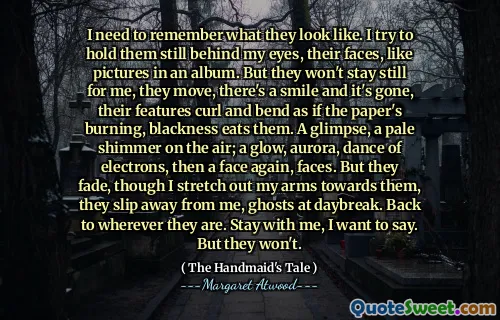Freedom, like everything else, is relative.
In "The Handmaid's Tale" by Margaret Atwood, the concept of freedom is explored as a relative notion. The narrative depicts a dystopian society where personal liberties are severely restricted, highlighting that what one person may perceive as freedom could be viewed differently by another. The characters grapple with their lack of autonomy, prompting a deeper understanding of what true freedom means.
This quote emphasizes that freedom is not a fixed state; instead, it varies based on context and individual experience. In a society where the oppression of women is normalized, the characters' struggles illustrate that the pursuit of freedom is complex and often fraught with challenges, reminding readers that liberty is inherently subjective.






